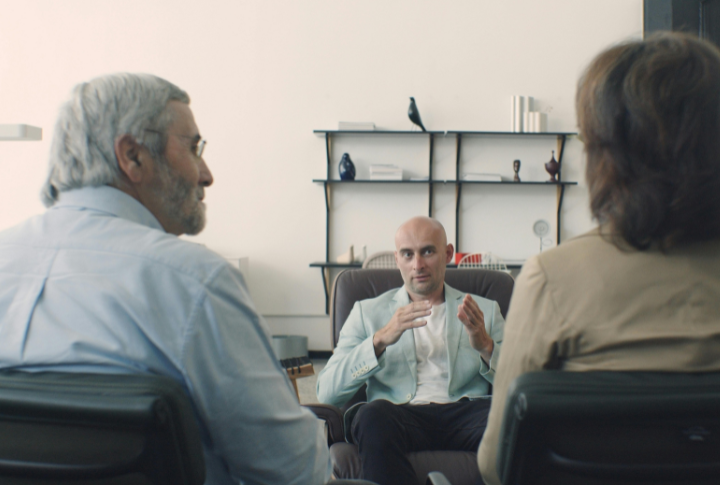
Marriage is often described as a journey, but even couples who’ve shared decades together can find themselves on rocky ground. Why do long-term relationships, once so solid, sometimes crumble? This list explores 30 reasons marriages can fall apart after years of commitment.
The Rise of Gray Divorce

After decades of focusing on others, some people crave a return to self-discovery. The shift towards pursuing individual goals can create a gap in a marriage, where one partner’s exploration of new passions leaves the other feeling disconnected.
Extended Life Expectancy and New Horizons

Longer life expectancy is reshaping relationships. Many couples are reconsidering their marriages, with U.S. women living to 81.5 years and men to 76.5. As people live longer, they prioritize personal happiness, often questioning themselves in ways that previous generations feared.
Empty Nest Dynamics

The empty nest can be a turning point for many couples. Some rediscover intimacy, but others realize how distant they’ve become. Without the focus on parenting, unresolved issues rise. Many struggle to reconnect, feeling like strangers after years of putting their children first.
Rising Financial Independence

With greater financial security, particularly among women, many older adults feel empowered to leave unsatisfactory marriages. This economic independence gives them the freedom to prioritize themselves. Hence, divorce is increasingly seen as a path to fulfillment rather than failure.
Health Challenges

As couples age, health challenges often emerge. Caring for a partner with chronic issues can become overwhelming. It can lead to resentment when one spouse bears the burden. Over time, emotional exhaustion may set in, and the strain can gradually weaken the relationship and cause it to fracture.
Unmet Expectations

Years of unmet expectations can breed unhappiness in a relationship. When one partner feels consistently let down, it can spark thoughts of separation. After struggling with doubts and enduring, realizing that the other person isn’t changing or fulfilling promises makes it clear it’s time to leave and prioritize personal well-being.
Changing Social Norms

Societal attitudes toward divorce have shifted dramatically over the years. Once viewed as taboo, divorce is now considered a valid choice. Increased empathy allows people to see it as a path to personal growth. Support networks and positive media representation help normalize conversations about divorce and make it easier to accept.
Different Retirement Visions

Retirement is a significant life milestone, but when one partner envisions relaxation while the other dreams of new adventures, it can spark friction. These conflicting ideas about how to spend the golden years can erode the bond that holds the marriage together and cause some to rethink their future.
Mental Health Struggles

Anxiety, despair, and other mental health issues could cause emotional estrangement in elderly couples, which lowers marital satisfaction. The issues often result in conflict and a higher chance of separation. Additionally, one partner’s mental health can negatively impact the other’s well-being to create a cycle of distress.
Lack of Intimacy and Physical Distance

Aging affects physical intimacy in couples, which leads to feelings of neglect or rejection. Health issues like erectile dysfunction and chronic pain hinder sexual expression. Medications for various conditions may also decrease libido. Despite these challenges, many older adults still desire intimacy.
Infidelity and Betrayal

While infidelity isn’t exclusive to younger couples, later-life affairs can be especially painful. Betrayal at this stage can cause a deep rupture in trust and force a reexamination of the marriage’s foundations. The pain of starting over becomes outweighed by the desire to rebuild trust elsewhere.
Addiction Issues Take Their Toll

Trust erodes as secrecy and neglect grow with addictions. Emotional isolation will leave partners feeling rejected. Financial strain from addiction fuels conflict. Communication breaks down, and codependency develops, which creates unhealthy dynamics. Without effective treatment, many couples find it impossible to rebuild their relationship.
Unequal Emotional Investment

When one partner invests more emotionally in the relationship, it breeds resentment and creates a growing gap between them. As resentment builds, tensions rise, leading to more friction. While the other spouse may remain oblivious to the discomfort, the relationship is set to implode and shatter one day.
Differences in Grandparenting Styles

Grandchildren can bring joy but create conflicts over how much time and energy should be invested. For instance, one grandparent may be indulgent, while the other insists on discipline. A 2019 University of Michigan survey found that 15% of older couples cited disagreements over grandparenting roles as a reason for separation.
Miscommunication

When partners fail to express needs clearly, misunderstandings grow. Communication goes beyond stating needs; it involves conveying them in a way that resonates. These issues stem from dwindling patience and tolerance over time. Without resolution, couples may feel unheard and unsupported, which pushes them toward separation during critical life changes.
Shifts in Religious or Political Views

Ideological divides can cause significant rifts in older couples, especially in politics and religion. As beliefs change, different values may emerge. Frequent disagreements result in frustration and animosity. Emotional isolation increases when partners feel misunderstood. These tensions can ultimately push couples toward separation, especially during times of societal upheaval.
Diverging Interests

Shared hobbies are vital for relationship satisfaction. They foster intimacy and enhance communication. Couples that lack shared activities may feel disconnected from their partner. As interests diverge with age, couples risk boredom and emotional distance. It can cause partners to drift apart, with growing feelings of neglect and increasing conflict.
Growing Social Circles

Social shifts in older adulthood can strain relationships. If one partner focuses on meaningful connections, the other may feel left out or isolated. Conversely, a significant drop in social ties can lead to dissatisfaction. Ultimately, these changes can create friction, making it challenging for partners to accommodate each other’s needs.
The Realization of Long-Held Resentments

After years of ignored grievances, older couples often hit a breaking point. Boredom and major life changes, like retirement or children leaving home, prompt reflections on past issues. When these unresolved conflicts resurface, poor communication creates a chasm that pushes partners toward separation or divorce if not addressed.
Social Media Influence

The prevalence of social media can create unrealistic comparisons with others’ seemingly perfect lives. This constant exposure may lead individuals to question their relationships and consider alternatives. Jealousy and mistrust can arise and strain their partnership. Some may begin to disregard meaningful communication for online interactions and faux competition.
Conflicting Spending Habits

As retirement nears, financial habits often clash and lead to tension. A study from LifeHealth found that nearly one-third of Baby Boomers reported their marriages ended due to money conflicts. Misunderstandings arise from differing spending and saving goals, while poor financial communication can deepen displeasure and escalate stress between partners.
Caring for Aging Parents

The mental and physical toll associated with providing aging parents can strain marriages significantly. Couples may find that they lack the energy or resources to support each other amidst these challenges. If one partner feels more responsible, tensions can rise. This imbalance leads to divorce.
Midlife Crisis

A midlife crisis often triggers dissatisfaction and self-reflection in individuals aged 40 to 60. This period can create increased conflict within marriages as partners become critical of each other. They may reassess their lives and feel the need to make drastic changes, which leads to impulsive decisions like ending a long-term marriage.
Family Interference

The presence of adult children or meddling in-laws can add strain to a marriage. It can become overwhelming when the family dynamics shift, especially with grown children returning home or needing financial help. The couple may find that their relationship gets pushed aside.
Groundbreaking Discoveries

Uncovering hidden truths, such as financial issues or emotional needs, dubiousness, or even crimes, may lead to feelings of betrayal and mistrust. Lies, like infidelity, erode trust and make reconciliation difficult. The emotional fallout can result in heartbreak and identity crises, ultimately pushing couples toward divorce.
New Romantic Interests

Due to significant lifestyle changes, personal choices, or chance events, many older adults re-enter the dating scene later in life. These new romantic interests can challenge existing relationships and prompt individuals to reconsider their commitments. Such situations may lead to conflict, heartbreak, and potential decisions about separation.
Peer Influence on Relationship Choices

Friends who value independence or have experiences with divorce can influence marital decisions. Observing peers thrive post-divorce may motivate those in unhappy marriages to consider similar paths. Stories of independence and self-discovery validate their feelings and inspire individuals to seek happiness outside their current relationships.
Trauma

Experiences such as the loss of a child, severe illness, or accidents can create deep emotional scars that affect how partners interact with each other. Partners often cope differently; one might seek support from friends or engage in activities to distract themselves while the other withdraws emotionally.
Desire for Companionship Over Marriage

Some older adults prioritize companionship over traditional marriage structures; they may seek fulfilling relationships without the constraints of lawful commitments that no longer serve them positively. They value emotional connections and shared experiences over societal expectations.

Comments
Loading…